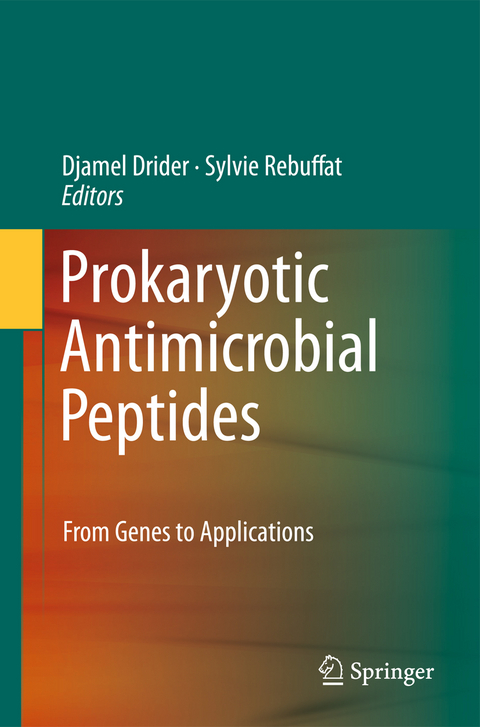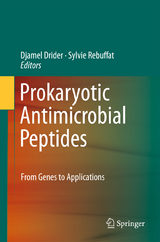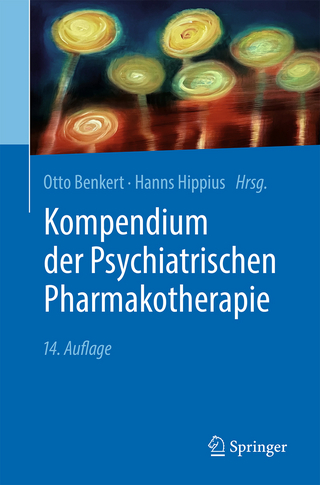Prokaryotic Antimicrobial Peptides
Springer-Verlag New York Inc.
978-1-4419-7691-8 (ISBN)
Dr. Djamel Drider is currently an associate professor of Microbiology at Nantes-Atlantic National College of Veterinary Medicine, Food Science and Engineering-ONIRIS. He obtained his PhD from Ecole Nationale Supérieure Agronomique de Montpellier (France) and completed his post-doc at Centro de Investigaciones Biológicas (Madrid, Spain) and Mount Sinai School of Medicine at New York University. Dr. Drider is currently a member of the editorial board of the journal, Probiotics and Antimicrobial Proteins and Chairman of the French Antimicrobial Peptides Society. Professor Sylvie Rebuffat is the Director of the Laboratory Communication Molecules and Adaptation of Microorganisms at the National Museum of Natural History in Paris, France. She researches antimicrobial peptides of bacterial origin (microcins, bacteriocins), focusing mainly on their mechanisms of action, structure/activity relationships, and biosynthetic pathways. Dr. Rebuffat is also the Scientific Advisor to the Director of the National Museum of Natural History.
Part I. Introduction: History, current Knowledge and future research on antimicrobial peptides.- Chapter 1. History, current knowledge and future directions on bacteriocin research in lactic acid bacteria.- Chapter 2. Bacteriocin mediated competitive interactions of bacterial populations and communities.- Part II. Classification of prokaryotic antimicrobial peptides.- Chapter 3. Classification of Bacteriocins from Gram positive bacteria.- Chapter 4. Bacteriocins from Gram negative bacteria: a classification?.- Part III. Isolation, purification and production of antimicrobial peptides.- Chapter 5. Genomes exploitation and bioinformatics tools.- Chapter 6. Design and engineering strategies for synthetic antimicrobial peptides.- Chapter 7. Purification techniques of bacteriocins from lactic acid bacteria and other Gram positive bacteria.- Chapter 8. Natural and heterologous production of Bacteriocins.- Part IV. Genetics, biosynthesis, structure, and mode of action of AMP from gram postive bacteria.- Chapter 9. Genetics, biosynthesis, structure and mode of action of lantibiotics.- Chapter 10. Class IIa bacteriocins: current knowledge and perspectives.- Chapter 11. The two-peptide (Class-IIb) bacteriocins: Genetics, Biosynthesis, Structure, and Mode-of-Action.- Chapter 12. Class IIc or circular bacteriocins.- Chapter 13. Class IId or linear and non pediocin-like bacteriocins.- Part V. Genetics, biosynthesis, structure, and mode of action of AMP from gram negative bacteria.- Chapter 14. Colicin killing: foiled cell defense and hijacked cell functions.- Chapter 15. Class I microcins: their structure, activities, and mechanisms of resistance.- Chapter 16. Class II microcins.- Chapter 17. Microcins: on the edge between gram positive bacteriocins and colicins.- Part VI. Applications and Perspectives.- Chapter 18. Food Applications and Regulation.- Chapter 19. Medical and Personal Care Applications of Bacteriocins Produced by Lactic Acid Bacteria.- Chapter 20. Perspectives and peptides of the next generation.
| Erscheint lt. Verlag | 8.3.2011 |
|---|---|
| Zusatzinfo | XIII, 451 p. |
| Verlagsort | New York, NY |
| Sprache | englisch |
| Maße | 155 x 235 mm |
| Themenwelt | Medizin / Pharmazie ► Medizinische Fachgebiete ► Pharmakologie / Pharmakotherapie |
| Naturwissenschaften ► Biologie ► Biochemie | |
| Naturwissenschaften ► Biologie ► Mikrobiologie / Immunologie | |
| Naturwissenschaften ► Chemie | |
| Technik ► Lebensmitteltechnologie | |
| Technik ► Umwelttechnik / Biotechnologie | |
| ISBN-10 | 1-4419-7691-4 / 1441976914 |
| ISBN-13 | 978-1-4419-7691-8 / 9781441976918 |
| Zustand | Neuware |
| Haben Sie eine Frage zum Produkt? |
aus dem Bereich




